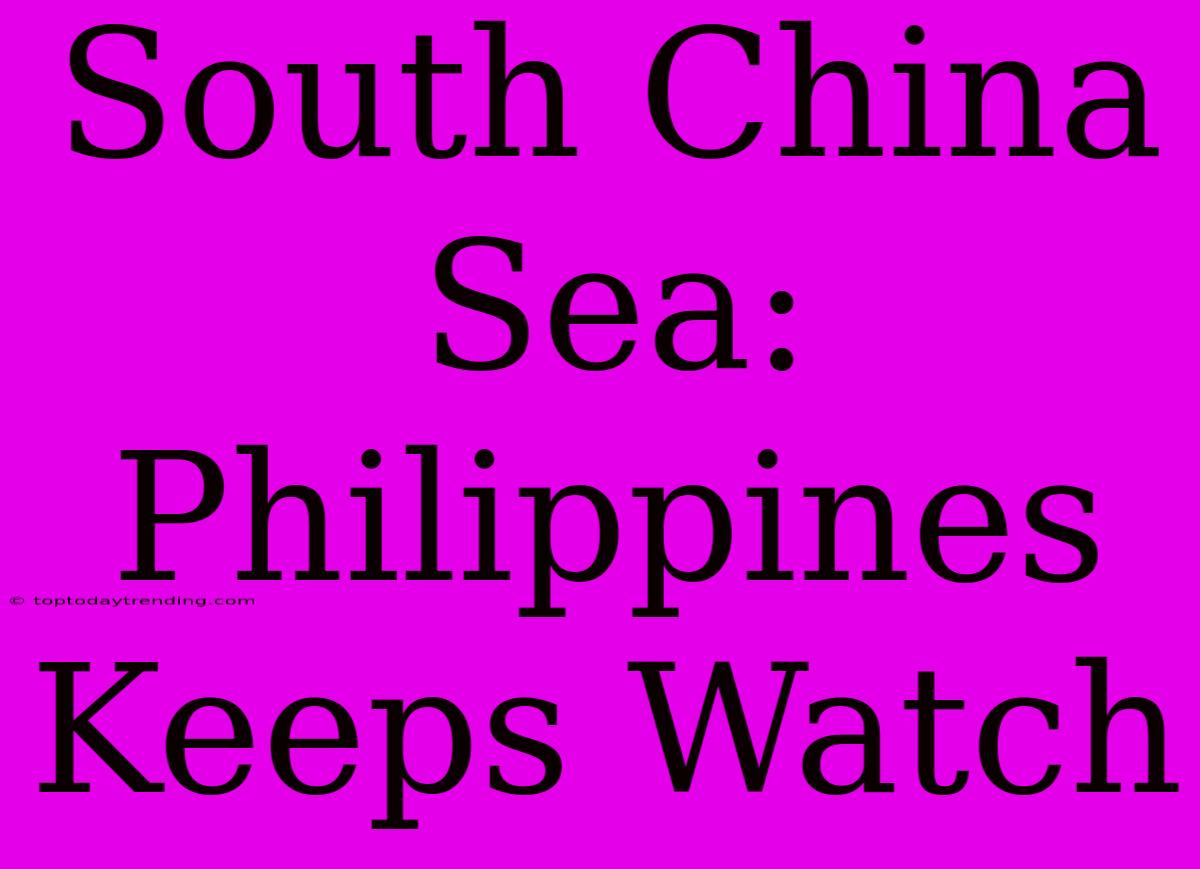South China Sea: Philippines Keeps Watch
The South China Sea, a vast and strategically important waterway, has long been a source of tension between China and its neighbors, particularly the Philippines. With overlapping claims and disputed territories, the region is a powder keg of geopolitical complexities. Amidst the ongoing maritime disputes, the Philippines, a vocal critic of China's assertive actions, remains steadfast in its commitment to safeguarding its territorial integrity and national interests in the South China Sea.
A History of Disputes
The South China Sea has been a flashpoint for decades, with China asserting its claim to almost the entire body of water, encompassing territories claimed by other Southeast Asian nations. This claim, based on a historical "nine-dash line" that extends far beyond China's recognized maritime boundaries, is contested by countries like the Philippines, Vietnam, Malaysia, Brunei, and Taiwan.
The Philippines' stake in the South China Sea is rooted in its proximity to the waterway and its dependence on its rich fishing grounds and valuable mineral resources. The country's claim is anchored in its 1978 law, which defines its exclusive economic zone (EEZ), encompassing the Scarborough Shoal (Bajo de Masinloc), a valuable fishing ground, and the Spratly Islands, a group of islets and reefs.
China's Assertiveness
China's growing assertiveness in the South China Sea has escalated tensions. Its aggressive actions include the construction of artificial islands, military installations, and the deployment of coast guard vessels and maritime militia to intimidate and harass other claimants. This escalation has raised concerns about China's intentions and prompted a response from the Philippines and its regional allies.
The Philippines' Stance
The Philippines has maintained a strong and consistent stance against China's actions. It has filed a case against China before the Permanent Court of Arbitration in The Hague, which, in 2016, ruled in favor of the Philippines, invalidating China's nine-dash line claim and upholding the Philippines' sovereign rights in its EEZ.
Despite the ruling, China has refused to recognize or comply with it, continuing to assert its claims and engage in aggressive activities. Undeterred, the Philippines has sought to strengthen its defense capabilities, enhance maritime security, and engage in diplomatic efforts to resolve the disputes peacefully and through international law.
The Philippines' Strategies
The Philippines' strategy to address the South China Sea dispute encompasses several key aspects:
- Diplomatic Engagement: The Philippines continues to engage in diplomatic dialogue with China, advocating for peaceful resolution through negotiations and adhering to international law. It also actively seeks support from regional and international partners, including the United States, Japan, and Australia, to strengthen its position.
- Strengthening Defense Capabilities: The Philippines is modernizing its armed forces, acquiring new equipment and capabilities to enhance its maritime security posture. This includes procuring patrol vessels, upgrading its navy, and enhancing its air force capabilities.
- Strengthening Regional Partnerships: The Philippines seeks to strengthen its partnerships with other claimant states in the South China Sea, including Vietnam, Malaysia, and Brunei. This collaborative approach aims to deter China's aggressive actions and promote a united front against its claims.
- Promoting International Law: The Philippines remains steadfast in its commitment to upholding the rule of law in the South China Sea. It continues to advocate for the peaceful resolution of disputes, adhering to the United Nations Convention on the Law of the Sea (UNCLOS) and other relevant international agreements.
Conclusion
The South China Sea dispute remains a significant challenge for the Philippines. However, the country's unwavering commitment to upholding its sovereignty, strengthening its defense capabilities, and engaging in diplomatic efforts provides hope for a peaceful resolution of the complex issues at play. The Philippines continues to stand watch, safeguarding its national interests and contributing to the stability and security of the region.

